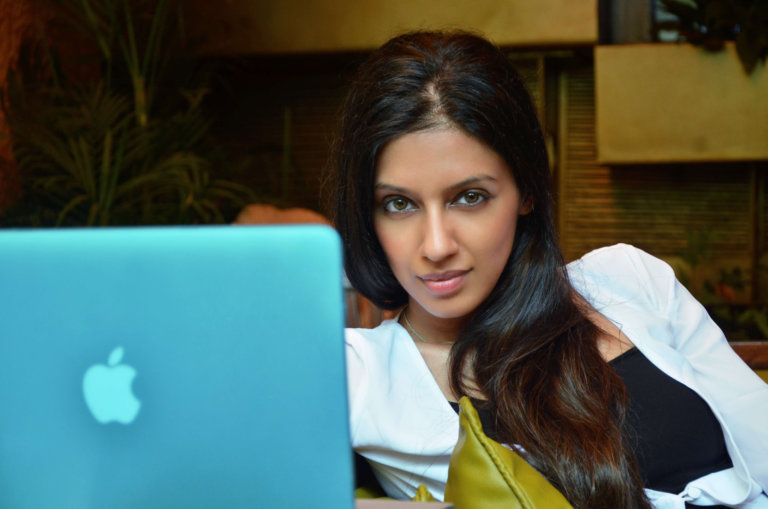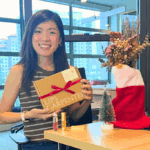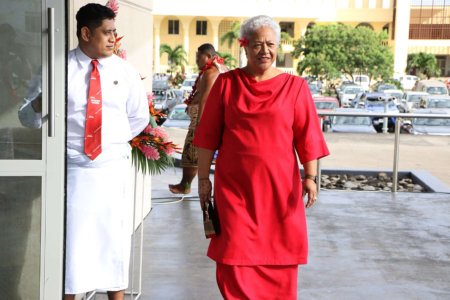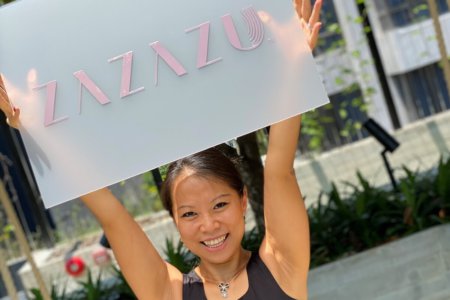
Psychologist, activist, feminist, scholar, supermodel — these are only some of the titles held by Dr. Anjhula Mya Singh Bais. As the current Chair of the International Board of Amnesty International, Dr. Bais has an impressive list of achievements that undeniably places her among some of the most powerful women in Asia, and perhaps, the world.
She obtained her PhD with distinction, focused in International Psychology from The Chicago School of Professional Psychology; a MSc in Psychoanalysis from University College London (with two years of global intelligence research experience at Columbia University), and an undergraduate degree in psychology from Lady Shri Ram College, University of New Delhi.
At the Harvard Kennedy School, Dr. Bais participated in an executive education programme in Global Leadership and Public Policy for the 21st Century. She remains the only international psychology trauma specialist in Malaysia. Most recently, she graduated through the Financial Times’ Non-Executive Director Diploma in Governance.
This year, she will be a judge for the World’s Best School Prize — a fitting acknowledgement of the important role education has played in her life. “I have studied around the world and like many people believe in lifelong learning,” she tells Study International. “I don’t think it’s a choice between experience and education, both are needed.”
Along the way, Dr. Bais made a name for herself among some of the most powerful women on the world stage. She’s been named among Prestige’s Top 40 Under 40 and Marie Claire’s Top 25 Amazing Women, as well as a Young Global Leader by the World Economic Forum Chairman. Before that, she started as a model and has strutted the runways of New York, London, India, and Singapore Fashion Weeks. Vogue has dubbed her a “supermodel”, while she has also graced the covers of hundreds of magazines and was featured in numerous campaigns, fashion shoots and runway shows.
Powerful women on a mission to destigmatise mental health: Dr. Anjhula Bais
Today, she serves as a psychologist to individuals, groups, businesses, and organisations. “My work is the intersection of human rights, mental health and climate through a feminist lens,” she tells us. She’s certainly no stranger to breaking social barriers and pushing the boundaries of what a woman can achieve — and uses her voice to encourage other women to believe the same of themselves.
This International Women’s Day, we speak to Dr. Bais about her journey through education, her inspiring journey as a woman and feminist in a male-dominated world, and the challenges she’s faced along the way.

Today, Dr. Bais serves as a psychologist to individuals, groups, businesses, and organisations. Source: Supplied
You hold multiple qualifications from Harvard, Columbia, and UCL. What is the importance of education to you, and how has this helped with your achievements?
Education is vitally important because it opens the vistas of critical thinking. It literally changes the world, which is why so many men don’t want women to become educated or are intimidated by their credentials. In India, for example, if you’re well educated, people often think you’re not marriageable material.
Your education is not meant to be lorded over people but rather to empower people. My father, a scientist and Sanskrit scholar, said that knowledge makes you immortal. As such, my mind is my greatest weapon and asset, and I wield it courageously.
How have you contributed to the destigmatisation of mental health in Asia?
By speaking about it at micro, meso, and macro levels, normalising where needed, and challenging it vociferously.
I support mental health advocates but I am weary of influencers and people who have experienced mental health thinking they are an expert. I went to school as a student for over 23 years, but that doesn’t mean I am a teacher. There are culturally appropriate ways of sharing examples and touchpoints that feel relevant to the stakeholders you are engaging with.
I have never met anyone who would not benefit from therapy. Going to therapy doesn’t mean you’re crazy, it means you want to up your game — this is my message.
You worked as a runway model for a while. Did this affect your standing as a psychologist? Do you find that this works for or against you?
It has worked for me. My therapy clients, especially 30 or younger, think it’s great that I understand social media, am not afraid of owning myself, how I present myself, and what I wear. Modelling was a great precursor to the world of psychology as it has issues that psychologists are fascinated with, such as celebrity, fame, personality, egos, body image, and more.
These days I am selective as to what I model because I have expanded consciousness, plus there is hardly time!
What challenges did you face in Asia as a woman in a male-dominated field, and how did you overcome them?
I don’t believe it’s in Asia only but worldwide. Gender bias is alive and real in all spheres of endeavours women participate in and contribute to. I have several amazing male colleagues that are awakened, inspiring, and allies.
Having said that, I still deal with what is called ‘male, pale, and stale’. They have been around forever, think they know everything, and treat women in undermining ways. Paraphrasing what Michelle Obama said, you realise pretty quickly that a lot of men at the table are often not that smart.
Do you have a particular memory that sticks out in your mind about any gender-based discrimination you have faced?
Recently, I had a male colleague act out after I gave firm feedback. He completely presented another way to other male colleagues, but with me, he bristled. What is the difference between one being assertive versus aggressive? Gender.
I know my worth, I know who I am. I don’t need men to remove obstacles — just get out of the way. I deal with it by standing my ground, I am unwavering. The world has too much going on to get sucked into male fragility.
You are an outspoken feminist. Were there any particular events that sparked this? Why is feminism important to you?
Like the women (and men) who have come before me, there comes a tipping point where enough is enough. My father and grandfather had feminist thoughts, they didn’t believe in arranging marriages for their daughters. As a result, I was always pushing the corners of patriarchy from a young age.
The power of women has been repressed for millennia. I have literally been told by a South African/British woman who had internalised misogyny that she can’t hire me even though I am so qualified because “I was too powerful and people won’t relate”. It’s a special pain when women do that to other women.
This is why awareness and a zero-tolerance approach is crucial. My life is my message.
How do you manage your time with work and other interests?
I repeat here what I say to people when giving feedback. There is no such thing as being too busy, it’s important to be accurate with words. It’s not a priority. If something is important, you will get it done. I employ mindfulness, states of flow, mini-breaks, eat clean, workout, meditate, and Buddhist chanting.
I say No far more than I say yes. I have trained myself to be comfortable saying no. It’s a full sentence!
What advice would you give to ambitious young women seeking to follow down the same path?
Don’t follow the same path as me, chart your own. When nothing is certain, everything is possible.
Lastly: you seem to have it all. Is this true?
That’s a façade people have built up of me in their own minds, it is the compare and despair phenomena. I do what is important to me, and I hope people honour their own internal longings and rhythm. In a naturalistic sense, the sun shines on everyone.










